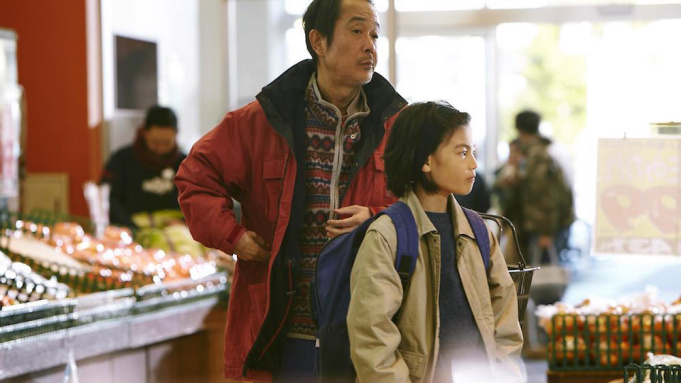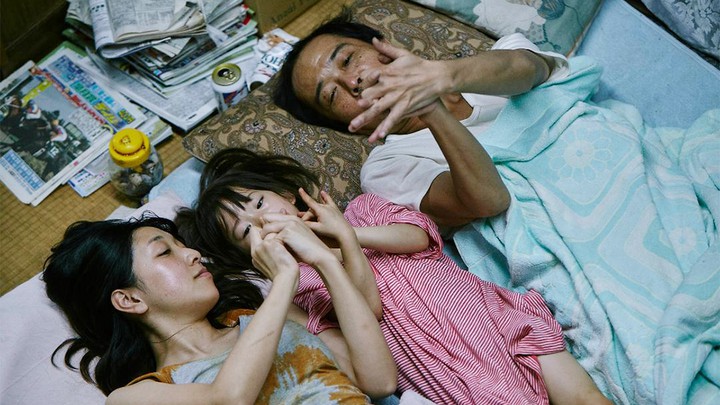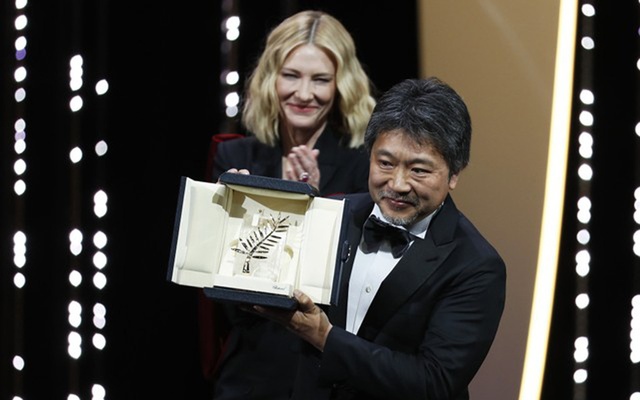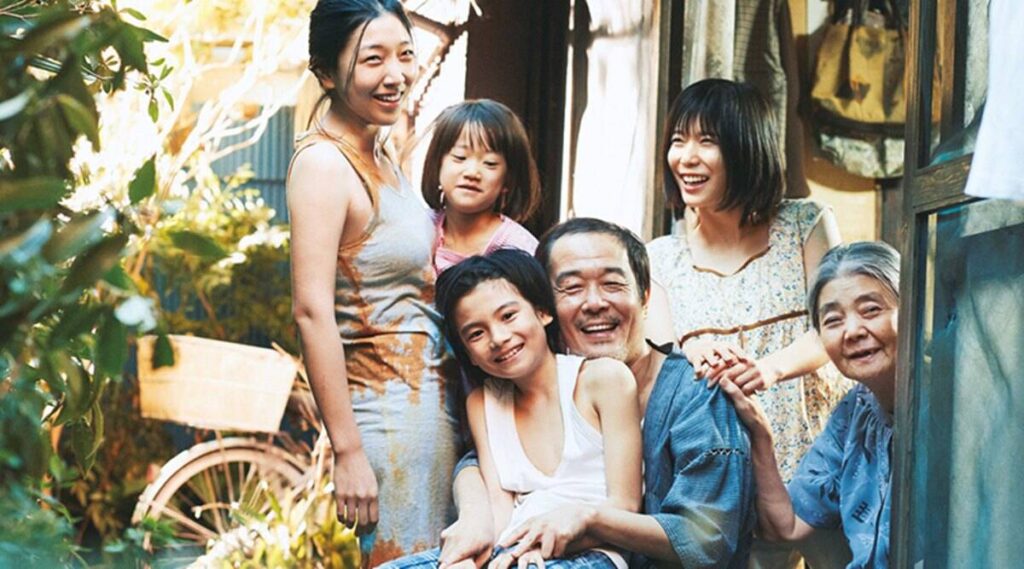Hirokazu Kore-eda once again establishes himself as an auteur of modern Japanese cinema through his recent film Shoplifters. The film is not based on a conventional story of mundane Japanese lives, rather it depends on an asymmetrical storyline. The plot and the characters are not bound by any cinematic rule. The filmmaker captures the other side of Japanese society, which lacks grandeur. Kore-eda has mastered the art of family life in Japan. Overall, Shoplifters is a film about flawed individuals but a lovable family.

Shoplifters is a story about a family (Shibata family) without blood relations in Tokyo, Japan. The Shibata family includes a grandmother, father, mother, daughter, and son. The grandmother Hatsue (Kirin Kiki) receives the pension of her late husband. The father Osamu (Lily Franky) was a daily laborer at a construction site but recently got laid off because of his ankle injury. The mother Nobuyo (Sakura Ando) works as a laundry worker, and the daughter Aki (Mayu Matsuoka) works at a hostess club. The son Shota (Kairi Jo) does not go to school and shoplifts goods from local shops. The family members live in a cramped shack in impoverished conditions. Even though they are not related by blood, the family is tied with love, affection, and care.
Osamu and Shota routinely steal goods from different shops. Osamu assures Shota that this is not a crime as they do not steal personal belongings. They steal goods using multiple hand signals. While returning from a shoplifting spree, they discover a young girl Yuri locked in her house. They take her to their home for a warm dinner and find out the scars on her whole body. There is no doubt that Yuri has been abused by her parents. The Shibata family decides to keep Yuri with them. When her photograph is shown on television, they cut her hair and change her name to Lin. Slowly, Lin becomes part of the family and starts learning shoplifting skills.
Hatsue regularly receives money from the son of her husband’s second wife. The family goes to the beach for a vacation. Hatsue passes away, and Osamu and Nobuyo bury her in the yard. Osamu breaks the window of a car and steals a purse. Shota is not convinced of the theft and is guilt-ridden as it breaks their moral code. Shota increasingly feels guilty that Yuri is learning this ill- activity at such a young age. He willingly got caught while shoplifting in a local shop, which stops Yuri from impending shoplifting. Osamu and Nobuyo get caught while fleeing with Aki and Yuri. Yuri is returned to her parents, who keep bruising her like before. The police officials inform Aki that Hatsue used to get money from her parents. Nobuyo takes the blame for all the crimes and is imprisoned. Osamu and Shota visit the prison to meet Nobuyo and she mentions the car details to Shota so that he can search for his birth parents. Shota spends the night with Osamu. Osamu runs behind the bus in the morning and Shota accepts him as his father.

Hirokazu Kore-eda asks a few very important questions through Shoplifters. What constitutes a family? Who is the real mother; One who gives birth or one who rears a child? Shoplifters is a slow but dynamic film, which showcases multiple layers of Japanese society. Kore-eda’s films have pure Japanese flavor and he is rightly considered as the heir to Ozu. However, Shoplifters is woven with the universal sentiments and emotions around family, society, and relationships. A woman does not become a mother just by giving birth. The family members may not be related by blood still they live much like a family and do not complain about the shortcomings. The family is bound with love, care, and affection.
Hatsue expresses her satisfaction and contentment during the beach vacation that she will not have a lonely death. When Yuri’s biological parents abandon and torture her, the Shibata family offers her a warm meal and welcomes her. They may be flawed individuals but surely have a big heart. There is no doubt that the family is generous and Kore-eda is successful in portraying the generosity. He also pinpoints Japanese society. Japan may appear as a technology-driven country, but Kore-eda does not shy away from highlighting impoverished sections of Japanese society. They even involve themselves in illegal activities like shoplifting just to make ends meet. Osamu expresses his helplessness in front of the police officials that he does not have any other skill apart from shoplifting. In spite of their crimes and flaws, they are lovable individuals and that is Kore-eda’s biggest achievement in Shoplifters. The viewers fall in love with the Shibata family.
Kore-eda adds multiple dimensions in Shoplifters. He shows a flawed but lovable family. He raises questions on real motherhood. His characters are so original that they are always lively on screen. In spite of crimes, his characters are not vilified. He does not miss out on major issues like poverty, miseries, lack of education, child abuse that still exist in modern Japan. Kore-eda depicts his characters with deep sympathy. Cinema cannot be more original and authentic. He is also the writer of the film, which includes some memorable dialogues. Shota tells Yuri that a school is for those kids who cannot study at home. Osamu says that he can not teach anything apart from Shoplifting. Nobuyo rightly points out that giving birth alone does not make a mother. All the actors in the film portray their characters aptly.

Kore-eda used very subtle music in Shoplifters. The music director Haruomi Hosono justifies his job. The cinematography in the film is brilliant. Shots were taken placing the camera closer to the actors. Cinematographer Kondo Ryuto is able to capture the mood of the characters through his camera. Overall, Kore-eda’s Shoplifters is a representative of the destitute sections of Japanese society. Only a filmmaker with the utmost command of his craft can make a film like this. The film won the coveted Palme d’Or at the 2018 Cannes Film Festival and was nominated for Best Foreign Language Film at the 91st Academy Awards and the 76th Golden Globe Awards.
